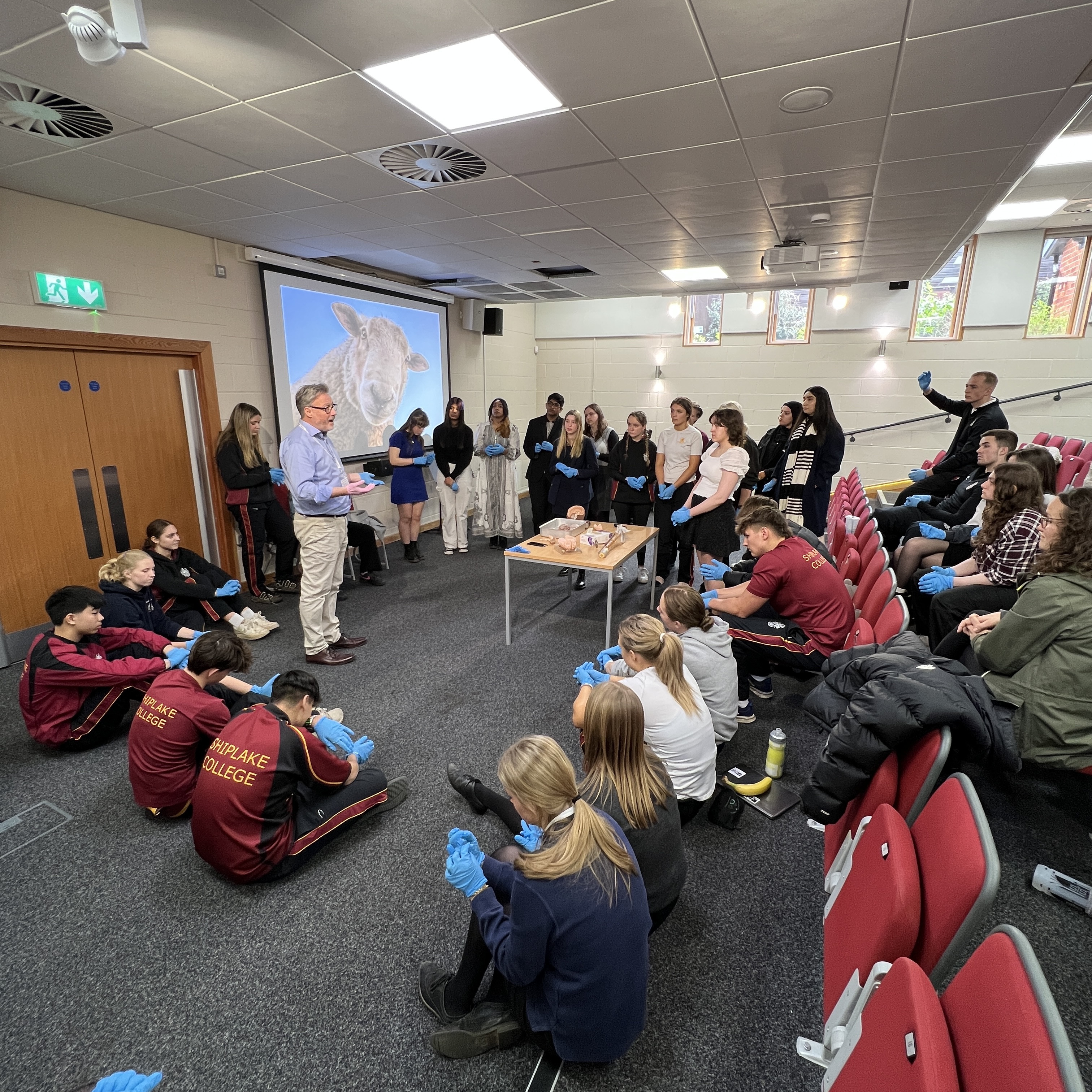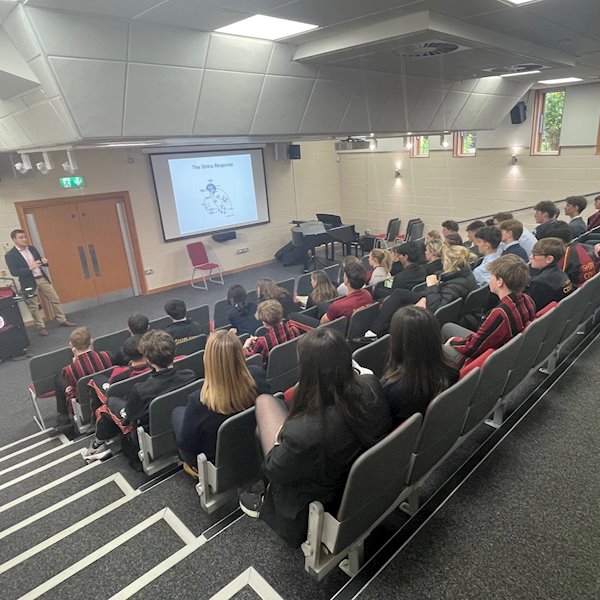
This term has seen a double dosage of science talks given to our senior pupils. First, as part of Brain Day, Dr Guy Sutton gave a series of talks and workshops to our A-level biology and psychology pupils and, later in the term, Dr Monty Lyman gave a talk on immune-psychiatry.
Brain Day, Wednesday 26 April

Students were engaged throughout as they learned about the latest research in neuroscience which included topics that go beyond their syllabuses. They were particularly excited to learn about the effects of brain damage on criminal behaviour, mind reading technology, and the developments of brain damage treatment through cerebral organoids.
The highlight of the day however was the brain dissection, as students observed a dissection of a sheep's brain and were able to see (and hold) the different structures they had learned about in class.
Year 12 pupil, Emily Banks, said: ‘Brain Day was so much fun! The highlight for me was looking at abnormalities in baby brain development. I learned so much and had a great time.’
Medicine and Psychology Talk, Tuesday 16 May

The following summary of the talk comes to us from Year 13 pupil, Nikita Saitov:
‘As an academic scholar, I had the chance to attend "The Gut Microbiome and Health', a presentation given by Dr Monty Lyman. We were given a thorough explanation of the processes undergoing in the immune system, and how they can be connected to physical and mental health.
Dr Lyman started off with an interesting story about how immunology and neuroscience emerged from the same building in 17th century Oxford, and why these branches of medicine slowly grew apart.
He slowly introduced us to a more holistic approach to the systems of our body, showing how the brain can influence the immune system and vice versa, and made connections to the evolutionary factors experienced by our ancestors. He did this by referencing modern studies to disprove the idea of the ‘immune privilege’ that suggested that a brain was completely disconnected from one’s body.
He then added fungi and bacteria into the model, stating that some of them might be responsible for changes in our behaviour and immune system, as well as the development of consciousness.
I really enjoyed the talk and how Dr Lyman used real-world examples to connect what seemed to be very distant fields of medical study; creating an engaging atmosphere and sharing interesting findings of modern research.’












.png&command_2=resize&height_2=85)
.jpg&command_2=resize&height_2=85)





